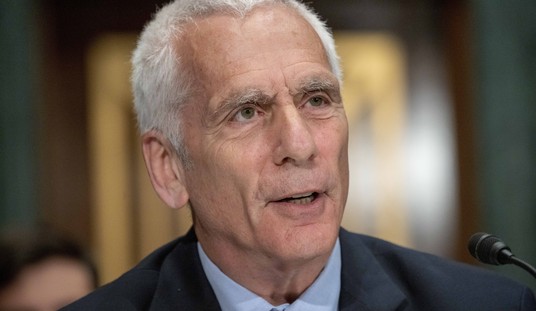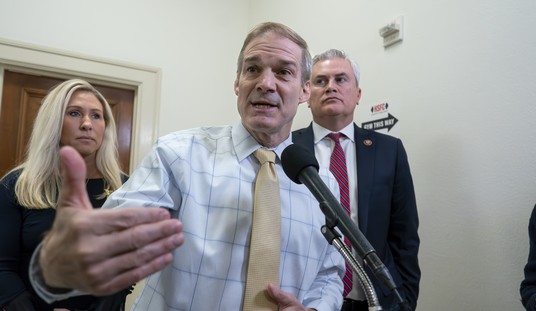Florida Gov. Ron DeSantis on Wednesday announced a new legislative proposal intended to strike a blow against Critical Race Theory (CRT) in classrooms and businesses. The Stop the Wrongs to Our Kids and Employees (WOKE) would “give businesses, employees, children and families tools to fight back against woke indoctrination,” according to the office of the governor.
The bill is intended to “take on both corporate wokeness and Critical Race Theory”
During an event announcing the proposal, Gov. DeSantis said the state is “taking a stand against the state-sanctioned racism that is critical race theory” and that Florida’s tax dollars will not be “spent teaching kids to hate our country or to hate each other.”
The governor continued:
“We also have a responsibility to ensure that parents have the means to vindicate their rights when it comes to enforcing state standards. Finally, we must protect Florida workers against the hostile work environment that is created when large corporations force their employees to endure CRT-inspired ‘training’ and indoctrination.”
Florida @GovRonDeSantis announces the "Stop Woke Act," putting FL's ban on CRT into statute.
It also includes a "private right of action" for parents to sue if they think their kids are being taught CRT.
Parents can collect attorneys fees if they are successful in their suit. pic.twitter.com/wqzrnN8QHN
— American Principles 🇺🇸 (@approject) December 15, 2021
The press release included a number of examples of how elements of CRT have been infused into classrooms across the country.
One of the notable aspects of the Stop WOKE act is that it would provide parents with a “private right of action” to file lawsuits against school districts that impose CRT-related policies. DeSantis reasoned that “parents know best what’s going on, and they’re in the best position to do it,” because they could force “discovery.”
The bill would also defund schools that enlist CRT consultants to assist them with injecting elements of the theory into classrooms. The theory would also be banned from employee trainings in schools.
The Stop WOKE Act does not stop with Florida’s schools, however. If passed, this law would also target corporations that implement trainings that the state deems to be derived from CRT. DeSantis argued that incorporating CRT concepts in business training seminars constitutes a “hostile work environment.”
He said: “This corporate CRT, it’s basically corporate sanctioned racism.”
The governor indicated he believes current law would empower workers to claim their civil rights were violated if they are subjected to certain types of diversity training. This law would be altered to also target “harassment.”
The governor’s press release gave some examples of CRT in the workplace:
Raytheon, the nation’s second-largest defense contractor, has launched a Critical Race Theory program that encourages white employees to confront their “privilege,” reject the principle of “equality,” and “defund the police.”
Bank of America teaches that the United States is a system of “white supremacy,” encourages employees to become “woke at work,” and teaches that white toddlers “develop racial biases by ages 3-5.”
A Google employee program claims that America is a “system of white supremacy” and that all Americans are “raised to be racist.”
The actual text of the legislative proposal has not yet been made public, so my assessment of this bill is preliminary. Overall, the law seems fine, but I do have some concerns.
But first, I’ll start with the areas in which I agree. DeSantis is spot-on when it comes to empowering parents to take legal action against schools that are using CRT to teach their kids that their fate is inextricably tied to their race. If a parent finds out their child is being labeled as “oppressor” or “oppressed,” they should be able to sue the district.
Despite what defenders of CRT would have you think, this very scenario has been played out in classrooms across the country. On my podcast, I interviewed a mother from Nevada whose son went through this very thing.
One of the problems with many of the anti-CRT laws is that the language is written in a way that is vague, meaning that someone could interpret it to target teachings they do not like but aren’t necessarily CRT. In Tennessee, a group of mothers filed a complaint against books detailing Dr. Martin Luther King’s march on Washington and books detailing the story of Ruby Bridges, one of the first black students to integrate schools in the 1960s. There is no CRT in any of those books.
However, so far, it does not appear this particular bill has that issue.
My area of concern is related to the state regulating what type of training materials corporations are allowed to use. As a conservatarian type, I believe the state’s purview over private businesses should be as limited as possible, so this aspect of the proposal is worrisome.
If companies are using CRT to harass employees based on their race, then they should be subject to legal action. This concept is already enshrined in the Constitution. However, altering existing law to include “harassment” could lead to a slippery slope. One could claim that regular diversity training that doesn’t teach that all white people are racist bigots is “harassment.”
I believe companies should be able to operate their businesses mostly as they see fit without government interference. If a business is using training material that people don’t like, the free market should address the matter, not the state. One can choose to work for an employer that doesn’t require the teaching of batty far-leftist ideas.
Moreover, whenever a proposal that would increase government is introduced, I immediately ask myself the following question: How will this measure be used against us when the left gains power? Florida being governed by Republicans is not guaranteed. What if some far-leftist whack job gets into power and uses this law to enforce wokeist tenets in corporations?
As I stated previously, I have not yet read the text of the measure. Perhaps the language will be such that my concerns are alleviated. If so, I’ll gladly celebrate this measure and encourage other states to adopt something similar. Nevertheless, whenever something like this is introduced, we conservatives must not jump to praise it before fully considering the ramifications. Otherwise, we might end up with something that isn’t a great as it seems.













